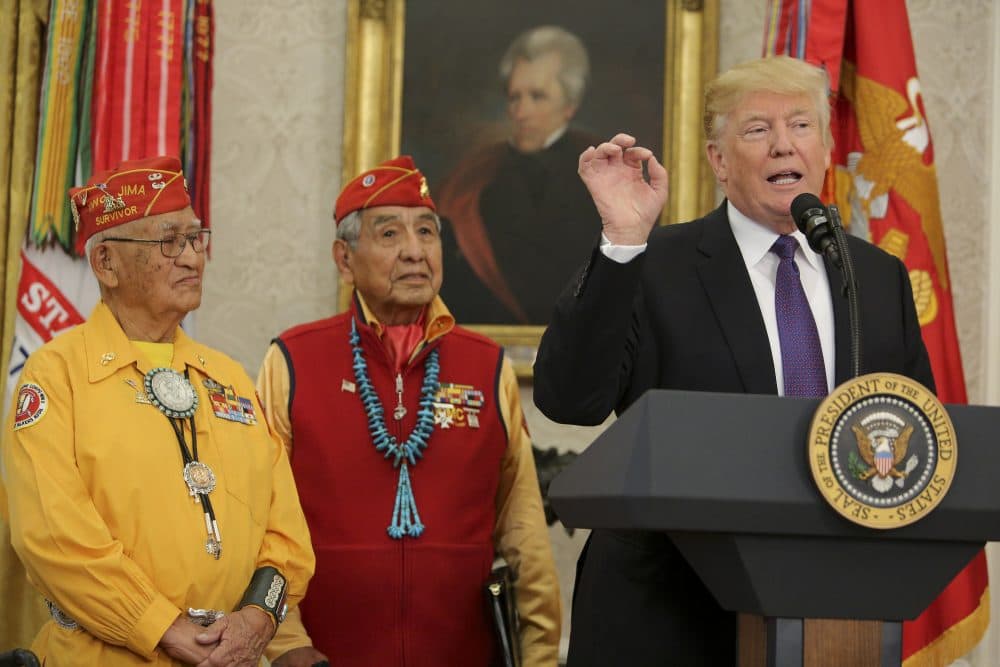Advertisement
Trump's 'Pocahontas' Remark Is No Joke To Native Americans
Resume
Native Americans say they don't see the humor in President Trump's remarks at an event to honor Native American Code Talkers — particularly his reference to Masschusetts Democratic Sen. Elizabeth Warren as "Pocahontas."
Here & Now's Robin Young speaks with Mark Trahant (@TrahantReports), former president of the Native American Journalists Association and a member of the Shoshone-Bannock tribe.
Interview Highlights
On President Trump's "Pocahontas" reference
“It was a kind of par-for-the-course insult. Really it's been going on since the campaign. In fact, the first time he used the slur was in North Dakota when he was championing the oil industry. This is the first time he did it at the White House with a group supposedly honoring Native Americans.
"[Pocahontas] has a remarkable story, and it's one worth telling, but the way he did it was to denigrate her name and to use it as a slur. It would be the same as if somebody used any historical name and reduced it to a caricature.”
On the Andrew Jackson portrait at the event
“Andrew Jackson, in so many ways, is representing the complexity that is America. And Donald Trump has certainly made him prominent. This narrative of Jackson, of destruction of Indian Country, is one that comes up a lot. And you would think in this context, the president would have just done it somewhere else.
"At the very least there's no one at the White House with cultural awareness, but I think it was intentional. I think they do want to show Jackson as this great commander. I mean, it was so clearly prominent that I think it was by design. You look at the public policy applications of this and there's already really a disinclination to listen to tribal governments."
On how the Trump administration is affecting life in Indian Country
“I mean, it's so easy to get an outrage over something like this — it's so expected. But what we're now seeing is these real public policy applications that are not getting the same kind of debate, especially in the media. One of the things with health care that's just so amazing is that when the Indian Health Service runs out of money it starts using what's called the 'life or limb' standard, that you don't get care unless you're actually threatened with life and limb. And you can imagine what that means for ordinary people going to see the doctor who don't meet that test.
"This country has made extraordinary promises through treaties that really set a high standard for what its tests should be. And yet no Congress and no president has ever come close, and now we're going backwards. Instead of funding the Indian health system or funding education, the Congress is saying, 'We can't afford it.' And if you can't afford the promises that are the core of this country, it really begs the question of what kind of country we live in."
On the media’s coverage of the president’s slur
“I just wish the press was more open to narratives beyond these ones that we know will go viral and start actually getting out and reporting on Indian Country. And part of the problem is there's just not enough Native American representation in the media.”
This article was originally published on November 28, 2017.
This segment aired on November 28, 2017.